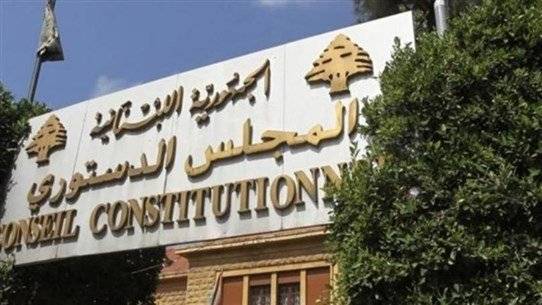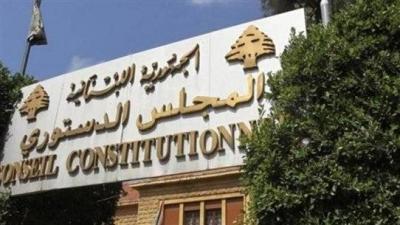Elected deputies whose victories are being contested enter a phase of holding their breath and are preparing for the battle to retain their seats, which is as crucial as the electoral campaign that brought them to the parliamentary session. This follows the closure of the deadline for challenges to the results of the parliamentary elections held in Lebanon on May 15. The number of challenges has reached 15, covering 18 winning deputies across various regions. There was one challenge in each of the Beirut districts (first and second), South (first and third), Mount Lebanon (second and third), Bekaa (first), and North (first), while the North (second district) encompassing Tripoli, Minieh, and Donieh had the highest number with four challenges.
Those filing the challenges cite violations and irregularities that allegedly altered the results and led to their loss of the parliamentary seat. However, this does not imply that those submitting these reviews will achieve their goals, as the Constitutional Council bases its convictions on criteria that should be met for any challenge. Constitutional expert and attorney Dr. Adel Yamin outlines the process these challenges will follow before a decision is reached, noting that the Constitutional Council "will appoint a rapporteur for each challenge, who has a three-month deadline to complete his report and submit it to the council, which must reach a decision within a maximum period of one month."
In an interview with Asharq Al-Awsat, he indicates that the Council's task "focuses on examining the defects, arithmetic errors, violations, and electoral crimes that led to the distortion of the announced results." Yamin explains: "Once the Council verifies the errors, it must assess whether the number of votes affected by these defects and irregularities caused the announced victory and the loss of the challenger (losing candidate). It is not enough that violations occurred; it must be confirmed whether these violations led to the challenger’s loss or if they resulted in a small vote margin."
Observers agree that some challenges are serious given the significant number of votes received by the losing candidate and the narrow margin between the winner and the challenger, while other challenges lack seriousness due to the wide gap between the winner and the loser. Constitutional expert Yamin notes that "the closer the margins are between the challenger (the one submitting the challenge) and the challenged (the election winner), the more we can anticipate the possibility of the challenge being accepted," highlighting an important aspect: these challenges "now face a new experience, as the Constitutional Council, established in the early 1990s, set up its system based on majoritarian election law, whereas the elections of 2018 and 2022 were based on proportional law and lists." He considers that "the Constitutional Council is now facing a real test to prove its ability to deal with this new matter, as the collapse of one stone will lead to the collapse of others."
The North (second district) is in the spotlight because the challenges involve several winning change-oriented deputies in Tripoli. Political figure Khaldoun Al-Sharif (from Tripoli) views the challenges submitted by losers in this district as "extremely serious," attributing this to "the close contact and proximity in the vote shares between the losers and the winners, especially between the list of former Deputy Faisal Karami and the list of winning Deputy Ihab Matar." Al-Sharif confirms to Asharq Al-Awsat that "the elections in Lebanon overall were not fair, as the financial amounts spent exceeded all legal limits overtly, and some political and party actors exercised their utmost influence on the electoral process, especially in sectarian-dominant areas."
He questioned, "Why did the election results in Tripoli lag behind those of other districts? Was there something happening behind the scenes that altered the results?" If the challenge is indeed a right of the loser to attempt to reclaim his lost right that led to his loss of the seat and to prevent political influence on the results of the electoral process, Al-Sharif expressed concern about "the impact of political pressures on the Constitutional Council, in an attempt to manipulate its convictions," reminding that "some past experiences do not bode well." In response to the possibility that these challenges could restore a previous majority, Al-Sharif says: "No party can hold a majority in this council; it has become evident during the election of the Speaker and Deputy Speaker, as well as the committees, that blocs move according to their interests between camps, while fundamentally, Hezbollah still holds the upper hand in political decision-making, which is not related to numbers, but to influence, sway, and arms."




